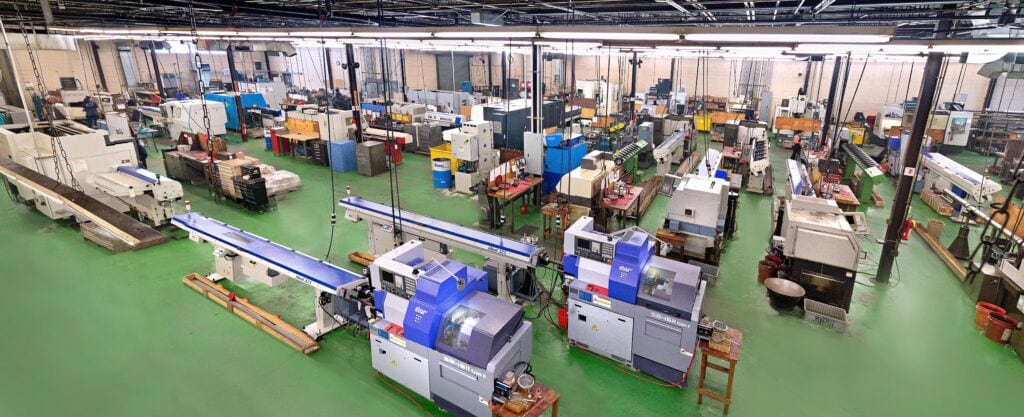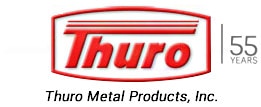
The goal of Thuro Metal Products is to take your request and provide you with high quality parts down to the smallest detail.
CNC Swiss Turning is the ideal choice for fabricating close tolerance small parts and long, narrow diameter cylindrical components.
- Ultra precise tolerances on Swiss machined parts are typically ±.0002′′
- Ability to fabricate parts measuring 2–32 mm in diameter and up to 14′′ long
- Materials include aluminum, brass, copper, titanium, and most types of steel
- Specializing in machining Brass 360, 12L14 and 1215 Steel, Stainless steel type 303, 430FR and 440C, 6061 Aluminum and Alloy Steels
- Single set-up multiple machining processes: thread milling, knurling, grinding, and gun drilling
- In-house tool fabrication
With over 50 years of experience in the production and manufacture of precision parts, Thuro Metal Products has become a leader in the production of Swiss machined parts with ultra-precise tolerances. The key to Thuro’s success is the implementation of Swiss technology, the most accurate method for parts fabrication.
What is CNC Swiss Turning?
The main difference between normal CNC lathes and CNC Swiss turned ones is how the part is manipulated in the machine. In the normal process, the workpiece remains stationary as the tool moves. In the CNC Swiss lathe process, the tools remain stationary as the lathe moves long the Z-axis.
This method of lathe operation offers greater versatility, producing parts that are complete without any need for secondary finishing. Complex and intricate profiles are easily programmed into the machine and completed in small or large volumes.
The Swiss turning process allows for the use of a wide variety of metals including Brass 360, 12L14 and 1215 Steel, Stainless steel type 303, 430FR and 440C, 6061 Aluminum, and Alloy Steels
Applications of CNC Swiss Turning
CNC Swiss turning easily produces small intricate parts in high volumes. Many of the components produced are used by the medical, automotive, electronics, and defense industries. Firing pins for military weapons, precisely crafted shafts, connectors, and precision engineered aerospace components are quickly and efficiently produced to the smallest detail.
One of the biggest demands of the medical field is components that are required to meet extremely exacting standards and requirements. This includes screws and tools for medical procedures. Several industries rely on the Swiss turning process because of its close tolerances and precision accuracy.
Benefits of CNC Swiss Turning
The biggest benefit of CNC Swiss turning is the convenience of single set up, which saves on labor and handling. Thread milling, knurling, grinding, and gun drilling are all rapidly completed by a single programmed machine.
With our customers’ cost in mind, Thuro Metal Products produces our toolings in-house to lower customer investment. By using in-house tooling, orders are completed faster, and designs can easily be changed and adjusted, which leads to our quality on time delivery system.
Critical parts have to be produced with the greatest precision to avoid possible failure. CNC Swiss turning produces parts with close tolerances regardless of the size of the part or whether it is a narrow diameter cylindrical component. Ultra-precise tolerances from CNC Swiss machined parts are at ± 0.0002” and can fabricate parts measuring 2 to 32 mm in diameter that are up to 14” long.
The advanced precision of Thuro Metal Products produces material and part savings as well as streamlined highly efficient Swiss technology.
CNC Swiss Turning Materials
There are very few restrictions on the types of metals that can be machined using a CNC Swiss turning machine. Most commonly, aluminum, steel, brass, copper, and titanium are used to produce precise precision parts. The variety of metals that can be machined is an important benefit of the process, which can easily be programmed for any type of material.
The turning process can micro-machine the tiniest components down to the smallest detail with extreme accuracy. Though the variation in materials can influence the programming of the machine, once it is set up, complex and intricate parts are quickly, efficiently, and economical produced.
